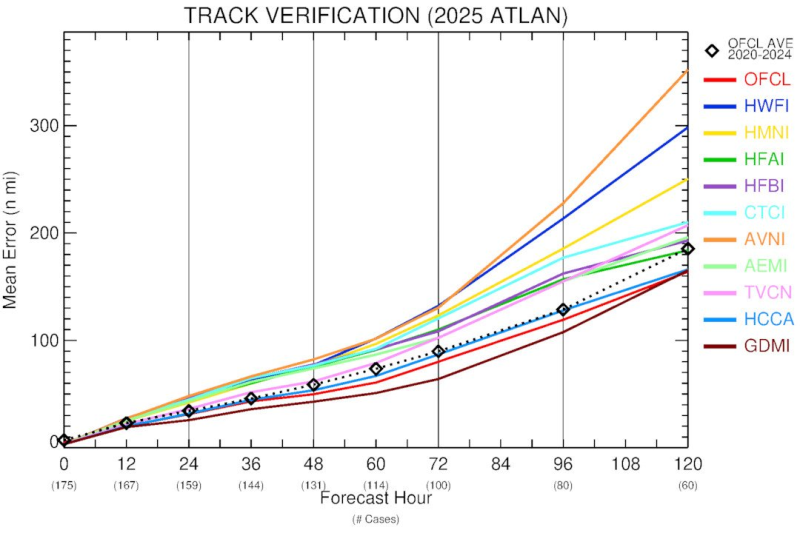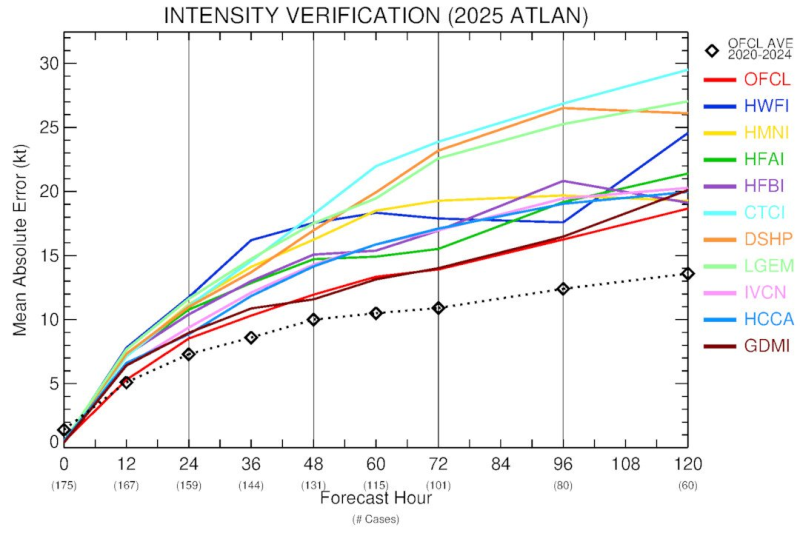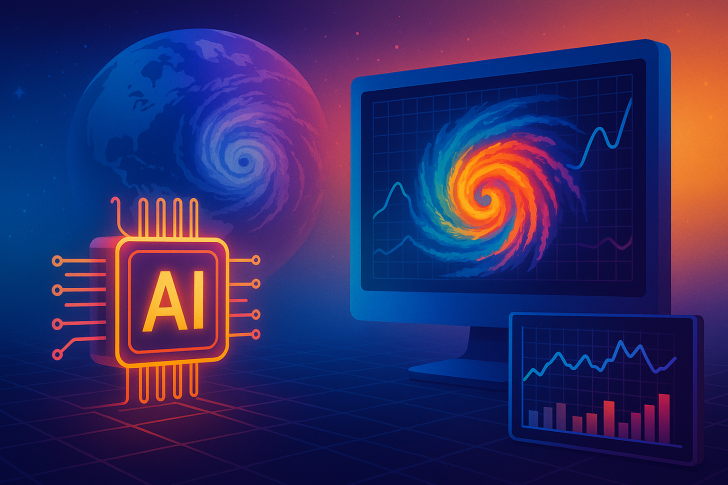● Google DeepMind's artificial intelligence has just pulled off something impressive: beating almost every traditional weather model at predicting hurricanes. According to a post by Prinz, the AI didn't just do well—it actually matched the National Hurricane Center's accuracy while outperforming other established systems.

● Brian McNoldy, a senior researcher at the University of Miami, called DeepMind's first season "a remarkable result." And the data backs that up. When Google launched its Weather Lab in June 2025, the idea was bold: use machine learning to process massive amounts of atmospheric data instead of relying on the physics-based models that have dominated weather forecasting for decades.

● Not everyone was convinced at first. Critics raised valid concerns about data bias, over-relying on untested AI, and the fact that you can't easily see how neural networks reach their conclusions. But the results speak for themselves.
● The "Track Verification (2025 ATLAN)" chart shows DeepMind's model—called GDMI—had the lowest average position error across all 13 named storms, from initial forecasts up to five days out. In plain English: it predicted where storms would go more accurately than any other model tested.
● The "Intensity Verification (2025 ATLAN)" chart is equally telling. GDMI performed nearly identically to the National Hurricane Center's official forecasts when predicting storm strength, staying within the smallest error margin for all timeframes up to 120 hours.
● This matters beyond bragging rights. The weather prediction industry is worth $13 billion, and AI-based forecasts use less energy and run faster than traditional models. That means potential cost savings for government agencies and insurance companies, plus better disaster preparation for coastal communities.
 Usman Salis
Usman Salis

 Usman Salis
Usman Salis


